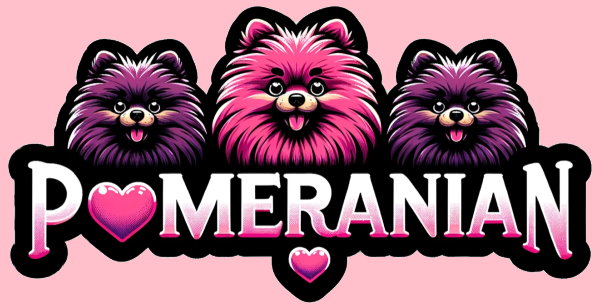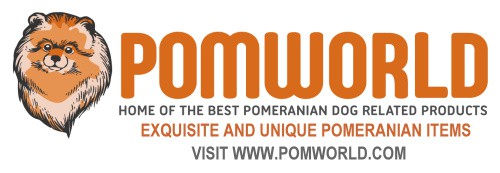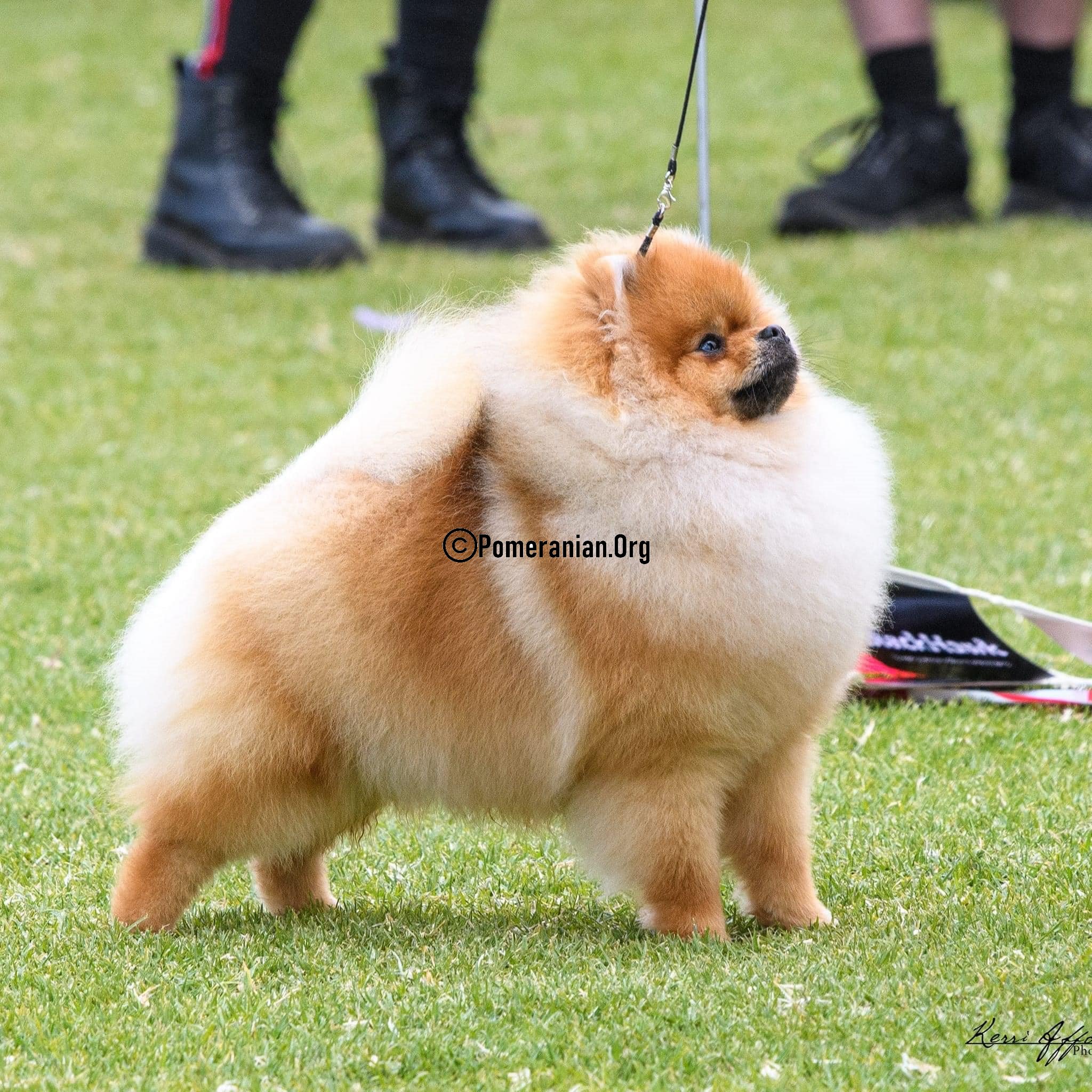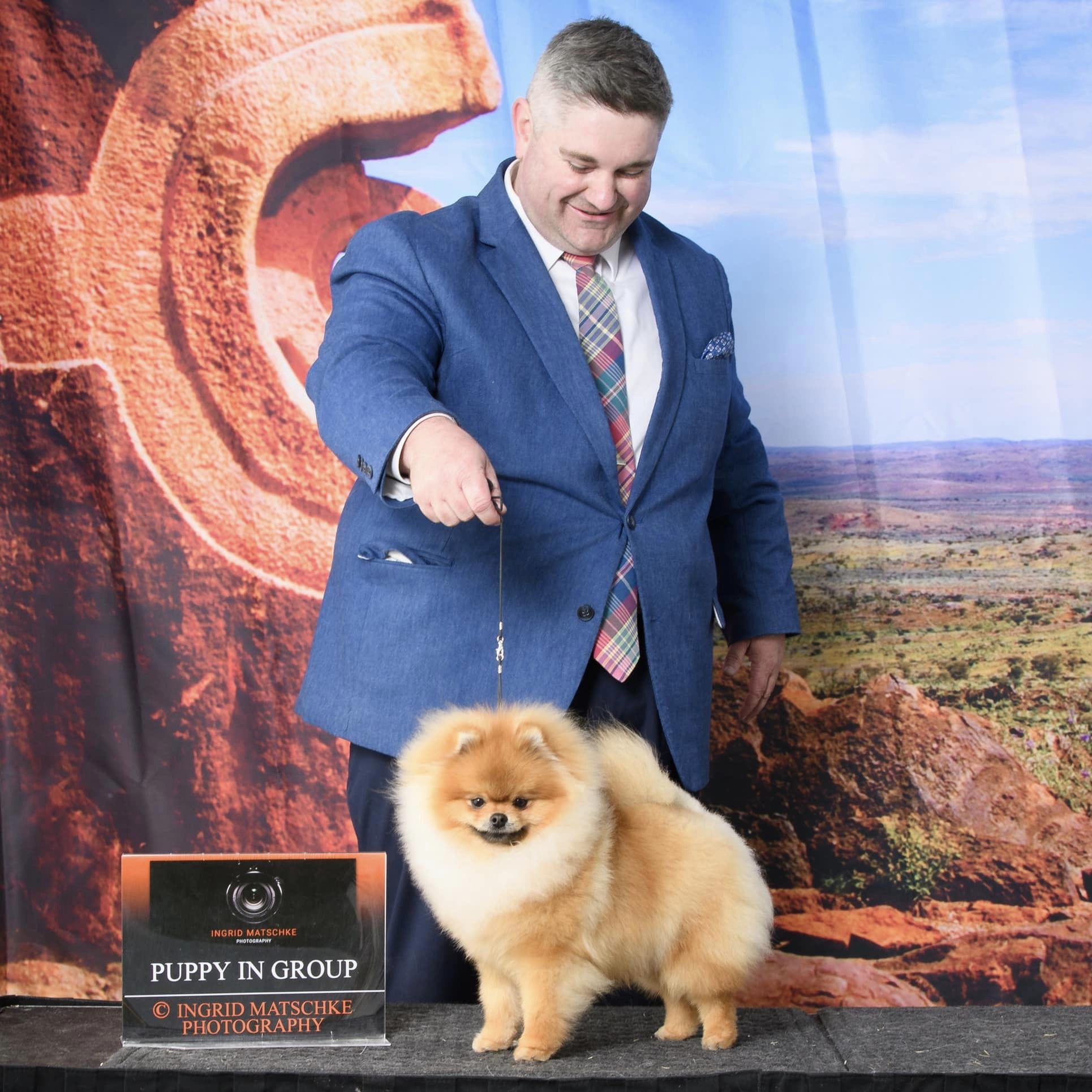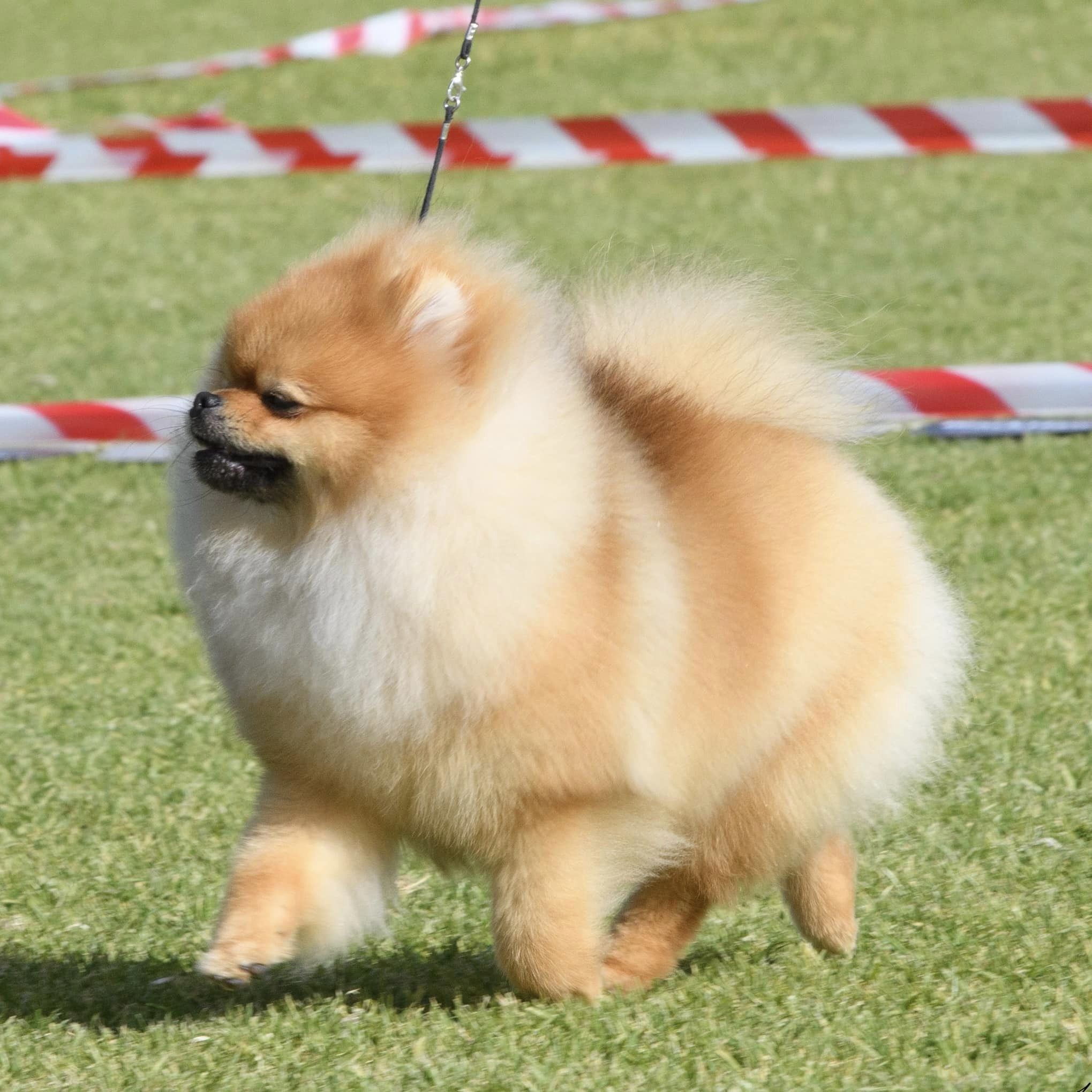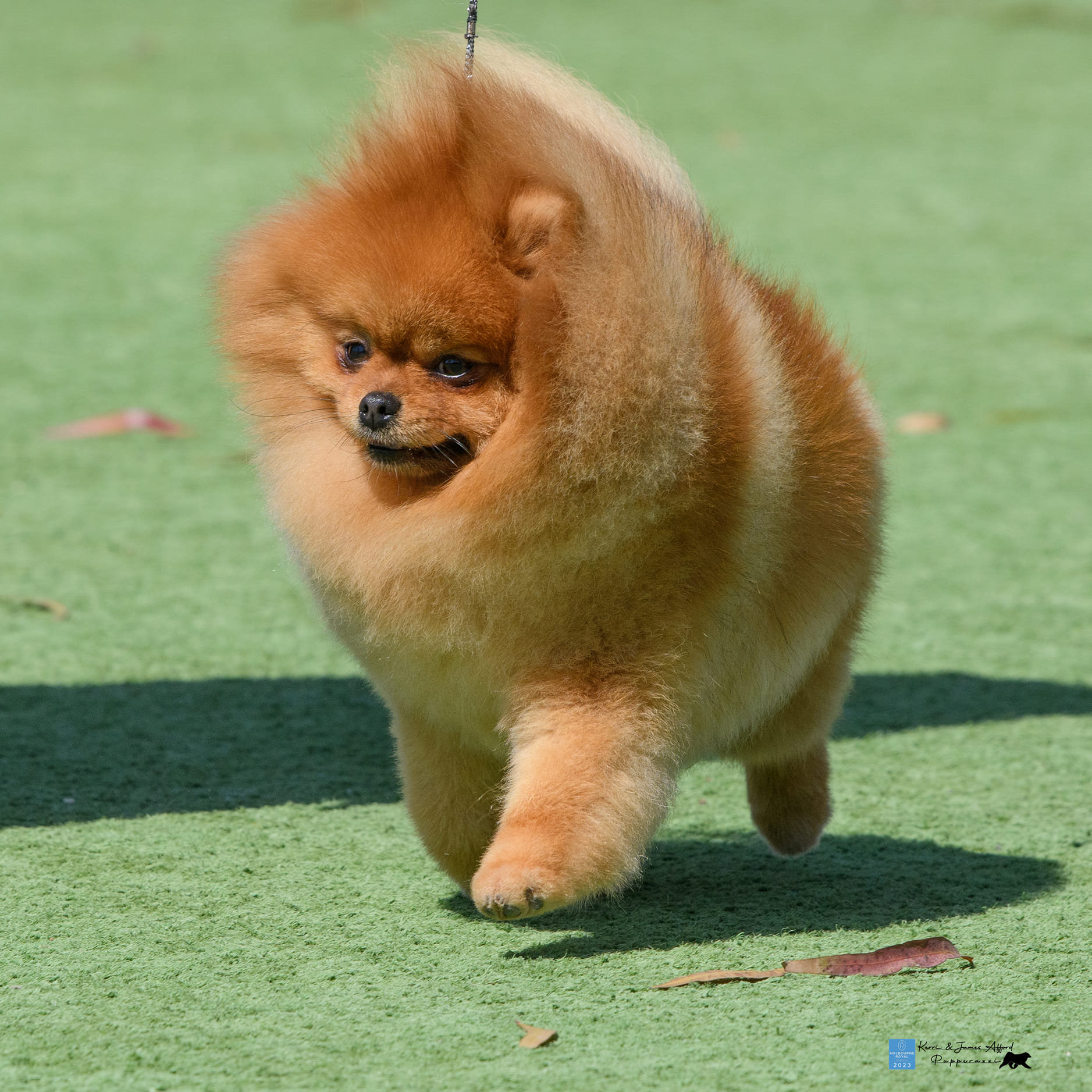Last Updated on 23/09/2023 by Dochlaggie. Post first published on June 12, 2016.
Hairballs can be a serious problem for dogs and cats. Dogs with longer fur are more susceptible to hairballs, and bigger ones at that. If their throats are small, such as in Pomeranians and other toy breeds, as well as in all puppies, then it can become an even more troublesome problem.
Pomeranian Dogs Get Hairballs for Numerous Reasons
Dogs often lick their fur and, if they’re shedding at the time, a large amount may be ingested. If they have fleas or ticks or simply itchy skin, they’ll more often be seen chewing or licking their fur, increasing the possibilities of hairballs.
Any fur that your Pomeranian ingests should move through his digestive system. If there’s too much of it, he may cough or vomit up the offending hairballs and then there won’t be any more trouble.
However, occasionally a hairball may be too big to move through your beloved pet’s intestines and it can’t be coughed up. It then starts blocking his digestive system and begins to ferment. In extreme cases, surgery may be required to remove it before too much damage has been done.
Warning Signs of Hairballs
If your pet has medium or long hair, watch for signs of shedding or more licking than usual as these indicate hairballs may occur. During the colder winter months, a dog’s skin may become irritated and dry, hence the extra licking to help solve these problems.
Check his favourite licking spots for signs of skin issues and parasites. If your pet Pom often has hairballs, it’s probably time to talk to your vet because they should normally pass easily into his stool. However, a more serious digestive problem may exist, preventing this from happening.
Dogs can get bored easily and licking and chewing fur is one way to pass the time so try to keep him occupied as much as possible so he doesn’t lick and chew. There are numerous symptoms to watch for if your Pomeranian has serious hairball problems (i.e. those that can block his systems).
These include: diarrhoea, constipation, lethargy and a poor appetite. The only visible sign is if he keeps gagging but nothing comes up. If he keeps gagging and trying to cough up hairballs for 24 hours without any success, ring your vet as a matter of urgency.
He may need laxatives to move the hairballs through or, in the most serious cases, he may need a surgical procedure to remove the hairball before it makes things any worse. Nobody wants to see their pet in pain or discomfort.
Tips For Preventing Pomeranian Dog Hairballs
Home Remedies for Hairballs in Pomeranians
It’s impossible to stop your Pomeranian from swallowing his fur but you can reduce the number of hairballs created by following these tips:
- Brush his coat regularly to remove loose hair. If he’s shedding, increase the regularity of your brushing and also use a moist cloth to wipe away loose hair the brush doesn’t remove. This will reduce the amount of time you need to spend vacuuming and using a lint roller.
- There are various lubricants and hairball remedies that have mainly been designed for cats but work equally well on dogs and they help him digest the fur much easier.
- Use recommended treatments to protect your beloved Pomeranian from ticks and fleas. If he chews and licks a lot, check his skin for any irritation or trouble with his fur.
- In the winter months, bathe him less so his skin doesn’t dry out as much. Use shampoos with moisturiser and oatmeal baths to decrease the licking, chewing and itchiness.
- Ensure your pet remains hydrated as that helps improve overall digestion. Get him new toys to keep him distracted from licking and chewing his own body.
Pomeranian breeders should take steps to ensure puppies don’t suffer from deadly hairballs. Pomeranian pups have been known to die as the result of bowel obstructions caused by ingesting their mother’s fur while nursing. Breeders should ensure mothers are shaved prior to whelping.
If you don’t like the idea of your Pomeranian Mom losing her coat all at once, just shave her underneath area. She’ll drop all her fur at eight weeks post whelping anyway, due to hormonal changes. Letting your Pomeranian keep her long coat while nursing puppies is a major hazard to the puppies.
The dangers of ingesting and choking on fur, especially for a small puppy with a tiny throat and digestive system, as well as other hygiene issues, are very real and must be taken seriously at all times. If you’re a savvy Pomeranian owner, your pet shouldn’t have to suffer from hairballs.
There are many Pomeranian Dog hairball home remedy ideas. Before using home remedies for hairballs, ensure any Pomeranian coughing or gagging is investigated by your Vet. . Take preventative action so you can avoid problems and your dog will love the extra attention, grooming and love.
Disclaimer: The Content is not intended to be a substitute for professional veterinarian advice, diagnosis, or treatment. Always seek the advice of your veterinarian with any questions you may have regarding the medical condition of your dog. Never disregard professional advice or delay in seeking it because of something you have read on ANY website.
Copyright Pomeranian.Org . All Rights Reserved.
References and Further Reading:
[1] Denise Leo “The Pomeranian Handbook”.
